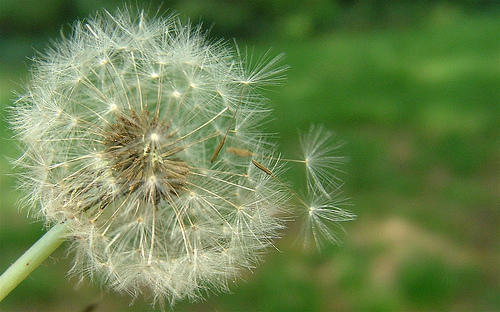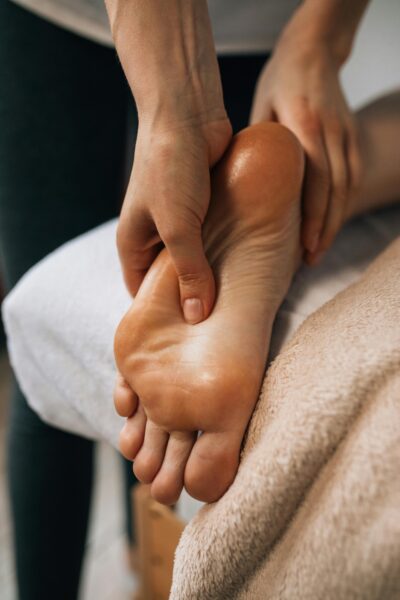
Spring Time Allergies and TCM
Now that spring has sprung we have headed into the season in Chinese Medicine that relates to the wood phase and wind climate. Spring represents birth, renewal and growth. Flowers are in bloom, grass is growing and trees are swaying with the wind. In Chinese medical theory, we embody and reflect these seasonal changes. In this vein of thinking, allergies and respiratory issues literally get stirred up during the spring. According to the Centers for Disease Control, allergies are the sixth leading cause of chronic illness in the United States. More than fifty million Americans suffer from allergies and an excess of eighteen billion dollars each year is spent on diagnosis, and the treatment, or management of symptoms. Allergies are brought on by a heightened state of the immune system. There is an increased inflammatory response that leads to irksome symptoms such as sniffles, drips, pressures and aches in our bodies. Acupuncture has been shown to have both an anti-inflammatory effect on the body as well as an immune boosting effect. One of the most common allergy symptoms is allergic rhinitis, which is most noticeable in the nose and eye. In the February 2015 issue of the American Academy of Otolaryngology, acupuncture is a recommended alternative option to prescription medication.
There are acupuncture points throughout the body that help to strengthen our body’s ability to ward off allergies and alleviate any of the current symptoms we might be experiencing. Because acupuncture is not a one size fits all medicine, your practitioner will tailor your acupuncture treatment based on your specific allergies or respiratory complaints. Additionally, there are also beneficial Chinese herbs that work in conjunction with your treatment. Chinese herbs have been shown to have anti-inflammatory, anti-bacterial, anti-fungal and immune boosting properties. Herbs will treat symptoms such as dry, itchy eyes, dry skin, pressure and congestion in the chest, head and face. They can also address different kinds of coughs such as a dry cough, or a productive cough. Herbs will also be adjusted to consider the color of the phlegm or mucous (clear, white, or yellow). As your symptoms change, your formula will change, addressing both the acute condition, and your underlying, or constitutional presentation. Your practitioner will continue to adjust your formula. Many over-the-counter cough, cold, and allergy formulations cause anxiety, sleepiness, or sleeplessness. Chinese herbal remedies do not. They are a good alternative to consider.
If you suffer from seasonal allergies, proactively scheduling a series of acupuncture treatments to reduce the inflammatory process and strengthen your immune system (even before it starts) is a great strategy to change these pesky patterns. You can also do your part at home through employing a few dietary and lifestyle strategies to help with your allergies!
At Home Tips:
• Use a Neti Pot with Neti salt to flush sinus passages – I prefer a ceramic Neti pot. Using it in the shower first thing in the morning, is great and takes care of the mess. • Use a room humidifier- this is especially important for dry climates. Moisture helps clear the sinus passages, which in turn will help with aches and pressure pains. • Invest in an air purifier and reduce or remove any known allergy triggers in your home. • Increase movement – dance, go for a walk, or try a Qi Gong, Tai Chi or Yoga Class. “Yin and restorative” yoga classes provide a great stretch, but are also relaxing and most people can do them. • Increase sleep- 7-9 hours/day. • Reduce stress- meditate, read, listen to your favorite music. • Reduce your intake of dairy products. They increase mucous production and phlegm. • Increase water intake – staying hydrated will help protect your sinuses by moistening the mucous membranes of the respiratory tract which helps with sinus drainage and resistance to infection. • Increase Vitamin C- Vitamin C has antioxidant (helping prevent damage to our cells) and anti-inflammatory properties. Vitamin C is also essential to collagen production, a protein that helps build skin, tendon, bone, cartilage and connective tissues. • Make chicken or vegetable soup – the vapor from soup helps to clear out sinuses, and the spices used in the soup have their own medicinal properties! Follow your own favorite chicken or vegetable soup recipe. Don’t forget to add lots of fresh garlic and green onion/scallions to the soup. These two ingredients belong to the Allium family and have great health benefits. Research shows garlic is an immune booster that helps alleviate cold symptoms and headaches. Green scallions contain Vitamin C and Vitamin A, which helps to protect mucous membranes. Food is medicine. Think of onions and scallions as Mother Nature’s antibiotics. • A common Chinese herb, Chrysanthemum flower, also known as “Ju Hua” can be purchased at a local Asian grocery store. Made into a tea, chrysanthemum helps with allergic headaches and red, itchy and dry eyes. Steep flowers in hot water for 3-5 minutes, remove flowers and enjoy • If you’re interested in reading more in depth about seasonal allergies, colds and sinusitis, a great book to check out is “Sinus Survival” by Robert Ivker, D.O.
By: Cailey Halloran, L.Ac. Dipl. O.M.
The practitioners at the ACOB offer acupuncture, Chinese herbal therapy, and food therapy. Book your appointment today at 303-665-5515.
Adv Ther. 2001 Jul-Aug;18(4):189-93. Preventing the common cold with a garlic supplement: a double-blind, placebo-controlled survey. Josling P(1)
Chinese Medical Herbology & Pharmacology Hardcover – January 1, 2004 by John K. Chen (Author), Tina T. Chen (Author)
Kerns, Michelle. Benefits of Green Onions. http://healthyeating.sfgate.com/benefits-green-onions-7762.html



